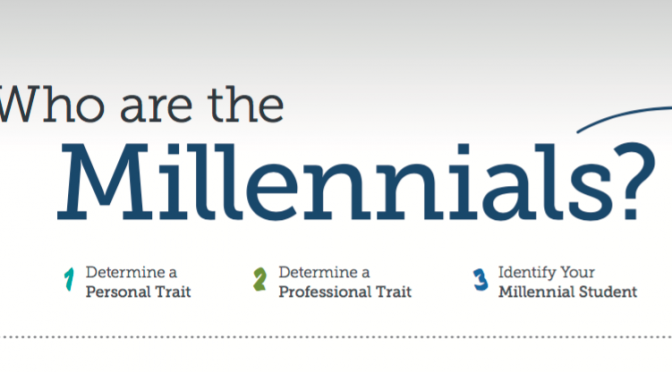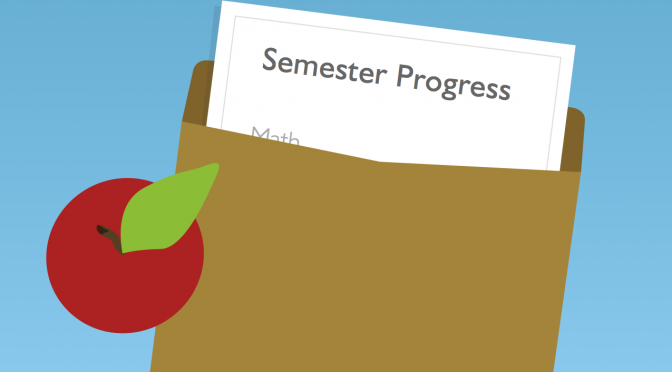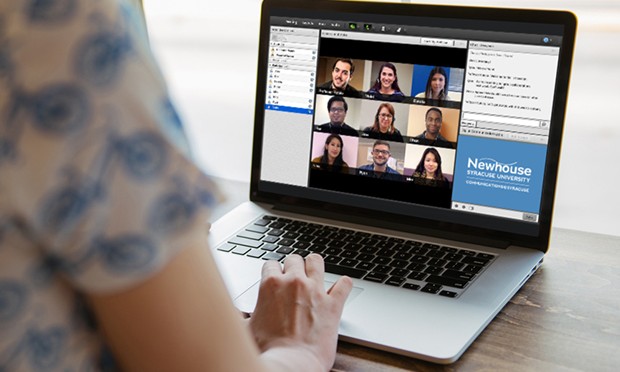UC Irvine has launched a new low-residency hybrid (or “mixed format”) master’s in Human-Computer Interaction and Design. The one-year program boast an “interdisciplinary orientation” and aims to prepare students for careers in UX, systems analysis, and project management.
Category Archives: Graduate Education
Infographic: Nine Types of Millennial Students
This EAB infographic subdivides the millennial student market by personal and professional traits.
[embeddoc url=”https://blogs.uoregon.edu/edtechknowledge/files/2016/05/30590_COEF_Infographic_Final-1uxs6hc.pdf” download=”all” viewer=”google”]
Link: 3 Online Education Trends That Will Shape How You Hire in 2016
The CEO of Coursera shares three trends that he thinks will shape the relationship between education and employment in the near future:
- Job Seekers Will Build Portfolios of Online Certificates, the New Currency for Skills
- Learning Will Become the Most Coveted Perk at Hot Employers
- The World Will Become Your Hiring Pool
Link: More Colleges Turn to “Stackable” Degrees as Entries to Graduate Programs
The University of Illinois is rolling out an online master’s in data science, which will be offered in conjunction with Coursera. The new degree costs $19,200, and builds on the certificates of completion already associated with the university’s pre-existing Coursera MOOCs.
Students who have already received those certificates will have a head start toward finishing the new degree, since those certificates make up two of the four distinct areas of study. The others are data visualization and machine learning. If admitted into the program, students could trade in those certificates for course credit.
Infographic: Online Report Card: Tracking Online Education in the United States
This visualization was created to accompany the annual report from the Babson Survey Research Group (see previous post).
[embeddoc url=”https://blogs.uoregon.edu/edtechknowledge/files/2016/02/2015SurveyInfo-1cqg09l.pdf” download=”all” viewer=”google”]
Online Report Card: Tracking Online Education in the United States
The 13th and final comprehensive annual report on online education, put out by the OLC, the Babson Survey Research Group, and others. Full report available for download.
The decision to end the reports in their current form is also based on the maturation of distance education programs in higher education and the growing number of other reports and surveys that have launched since we began this particular effort back in 2003. When more than one-quarter of higher education students are taking a course online, distance education is clearly mainstream.
Allen, I. Elaine, and Jeff Seaman, with Russell Poulin and Terri Taylor Straut. Online Report Card: Tracking Online Education in the United States. February 2016.
[embeddoc url=”https://blogs.uoregon.edu/edtechknowledge/files/2016/02/onlinereportcard-1hkgvfa.pdf” download=”all” viewer=”google”]
Link: Summiting by the Online Route
Excerpts from a conversation between Michael Rodgers (Southeast Missouri State) and Carl Lashley (UNC Greensboro), on Lashley’s experiences teaching in an online doctoral degree program.
UNCG’s doctoral program is attractive because it is sensitive to the needs of working professionals. The strong online component saves commuting time. From the relative comfort of home, students are fresher and more relaxed when it is time to log into the online course after a very busy day of work. Even so, most of Lashley’s students live relatively nearby (less than a 2 hour commute), which affords them the opportunity to come to campus from time to time for face-to-face courses, meet with faculty, and attend advising sessions and seminars. Lashley’s awareness of his students’ need for a sense of belonging motivates him to use the on-campus events to establish relationships that Lashley characterizes as “accidental cohorts,” which create connections and lend authenticity to the virtual relationships born of online interactions within discussion boards and group activities.
8 Characteristics of Good Online Video
According to a report published in the MERLOT Journal of Online Learning and Teaching, instructor-generated video can have a positive influence on student satisfaction with, and engagement in, online courses. But not all videos are created equal.
Research conducted by the American Academy of Neurology also reveals that “watching videos helps boost brain plasticity,” or the ability of the brain to undergo physical changes at any age. Learners who were trained to perform a particular task through videos performed better than those who learned through images and text, the researchers found—and they concluded that video has a “higher impact on the brain.”
Learn 8 high-impact strategies here.
Link: Coursera Chief: iMBA A Glimpse At Future
I think graduate education is about to undergo a massive disruption.
Daphne Koller, co-founder of Coursera, suggests that innovative online graduate programs–such as the “stackable” online MBA programming now offered by the University of Illinois, entirely through MOOCs–will expand in the coming years.
Read full article here.
Links: New and Expanding Online Graduate Degrees at Syracuse University
A representative example of a major trend in online education. Syracuse University is growing professional master’s programs and expanding online coursework available in high-profile areas of interest, such as data science.
- The Daily Orange, Oct. 21, 2015: “SU Officials Discuss Rise in Online Classes, Programs.”
- Syracuse University News, Feb. 17, 2015: “Online Education Gains Momentum at Syracuse With Innovative Programs.”
Also of note is a presentation given at the UPCEA 100th Annual Conference in March 2015, during which employees of Syracuse University discussed a survey of technology staff that highlighted the pros and cons of their decentralized working environment. The survey was based on the OLC Quality Scorecard.


